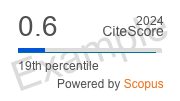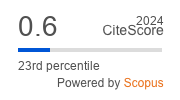The effects of renal denervation on adipokines and pro-inflammatory status in patients with resistant arterial hypertension associated with type 2 diabetes mellitus
https://doi.org/10.29001/2073-8552-2019-34-4-118-127
Abstract
Introduction. Pro-inflammatory biomarkers and adipokines are involved in the regulation of blood pressure (BP) and atherogenesis and are also associated with the sympathetic nervous system. Patients with resistant hypertension (RHTN) associated with type 2 diabetes mellitus (T2DM) are characterized by high sympathetic activity, adipokine imbalance, and pro-inflammatory activity. Moreover, renal denervation (RDN) is accompanied by a decrease in sympathetic tone.
Aim. To evaluate the effect of RDN on the adipokine profile and the levels of pro-inflammatory markers in patients with RHTN associated with T2DM.
Material and Methods. Forty-three patients with RHTN associated with T2DM were included in the single-arm prospective interventional study. Detailed protocols are available on ClinicalTrial.gov, numbers NCT01499810 and NCT02667912. The measurements of body mass index (BMI), waist circumference (WC), office BP, 24-hour ambulatory BP, lab tests (serum concentrations of hsCRP, TNF-a, adiponectin, leptin, resistin, and IL-6) were performed at baseline and at 6- and 12-month follow-ups. The one-year follow-up period of observation was completed with 40 patients.
Results. Significant and consistent reductions of BP, TNF-a, and hsCRP were observed 12 months after RDN. Additionally, there were substantial increases in both adiponectin and leptin levels. The change in TNF-a was directly related to the reduction in variability of systolic BP, whereas the changes in hsCRP, adiponectin and leptin levels had no relations with BP reduction. The BMI, WC, and resistin and IL-6 levels did not change after RDN.
Conclusions. This study demonstrated the ability of RDN to improve the adipokine profile and to reduce the activity of subclinical inflammation in patients with RHTN associated with T2DM. Increased adiponectin and leptin as well as reduced TNF-a and hsCRP production may contribute to BP reduction via metabolic and neuro-hormonal pathways.
About the Authors
A. Yu. FalkovskayaРоссия
Alta Yu. Falkovskaya, M.D., Cand. Sci. (Med.), Senior Research Scientist, Department of Hypertension.
111a, Kievskaya str., Tomsk, 634012
V. F. Mordovin
Россия
Victor F. Mordovin - M.D., Dr. Sci. (Med.), Professor, Head of the Department of Hypertension.
111a, Kievskaya str., Tomsk, 634012
S. E. Pekarskiy
Россия
Stanislav E. Pekarskiy - M.D., Dr. Sci. (Med.), Leading Research Scientist, Department of Hypertension.
111a, Kievskaya str., Tomsk, 634012
T. M. Ripp
Россия
Tatyana M. Ripp - M.D., Dr. Sci. (Med.), Leading Research Scientist, Department of Hypertension.
111a, Kievskaya str., Tomsk, 634012
V. A. Lichikaki
Россия
Valerya A. Lichikaki - M.D., Cand. Sci. (Med.), Research Scientist, Department of Hypertension.
111a, Kievskaya str., Tomsk, 634012
E. S. Sitkova
Россия
Ekaterina S. Sitkova - M.D., Cand. Sci. (Med.), Research Scientist, Department of Hypertension.
111a, Kievskaya str., Tomsk, 634012
I. V. Zyubanova
Россия
Irina V. Zyubanova - M.D., Cand. Sci. (Med.), Junior Research Scientist, Department of Hypertension.
111a, Kievskaya str., Tomsk, 634012
T. E. Suslova
Россия
Tatyana E. Suslova - M.D., Cand. Sci. (Med.), Leading Research Scientist, Department of Functional and Laboratory Diagnostics.
111a, Kievskaya str., Tomsk, 634012
A. M. Gusakova
Россия
Anna M. Gusakova - M.D., Cand. Sci. (Med.), Research Scientist, Department of Functional and Laboratory Diagnostics.
111a, Kievskaya str., Tomsk, 634012
A. E. Baev
Россия
Andrey E. Baev - M.D., Cand. Sci. (Med.), Cardiologist, Head of Department of Invasive Cardiology.
111a, Kievskaya str., Tomsk, 634012
M. А. Manukyan
Россия
Musheg A. Manukyan - Resident Physician, Department of Hypertension.
111a, Kievskaya str., Tomsk, 634012
E K. Buhkarova
Россия
Elmira K. Buhkarova - Resident Physician, Department of Hypertension.
111a, Kievskaya str., Tomsk, 634012
References
1. Rapsomaniki E., Timmis A., George J., Pujades-Rodriguez M., Shah A.D., Denaxas S. et al. Blood pressure and incidence of twelve cardiovascular diseases: lifetime risks, healthy life-years lost, and age-specific associations in 1.25 million people. Lancet. 2014;383:1899-1911.
2. Norlander A.E., Madhur M.S., Harrison D.G. The immunology of hypertension. Journal of Experimental Medicine. 2018;215(1):21-33. DOI: 10.1084/jem.20171773.
3. Faria A.P., Modolo R., Fontana V., Moreno H. Adipokines: novel players in resistant hypertension. The Journal of Clinical Hypertension. 2014;16(10):754-759.
4. Sabbatini A.R., Faria A.P, Barbaro N.R., Gordo W.M., Modolo R.G.P., Pinho C. et al. Deregulation of adipokines related to target organ damage on resistant hypertension. J. Hum. Hypertens. 2014;28:388-392. DOI:10.1038/jhh.2013.118.
5. Druzhilov M.A., Kuznetsova T.Yu. Internal obesity as a risk factor for arterial hypertension. Russian Journal of Cardiology. 2019;24(4):7-12 (In Russ.). DOI: 10.15829/1560-4071-2019-4-7-12.
6. Viktor Shvarc. Adipokines and insulin resistance. Viktor Shvarc in medicine science. 2016 (In Russ.). http://viktor-schwarz.j-cell.de/publica-tions-since/3-adipokines-and-insulin-resistance.html.
7. Kologrivova I.V., Suslova T.E., Koshelskaya O.A., Vinnickaya I.V., Trubacheva O.A. System of matrix metalloproteinases and cytokine secretion in type 2 diabetes mellitus and impaired carbohydrate tolerance associated with arterial hypertension. Bulletin of Experimental Biology and Medicine. 2013;11:578-581 (In Russ.).
8. The GBD 2013 Obesity Collaboration. Global, regional, and national prevalence of overweight and obesity in children and adults during 1980-2013: a systematic analysis for the global burden of disease study 2013. Lancet. 2014;384(30):766-781. DOI: 10.1016/S0140-6736(14)60460-8.
9. Rajkovic N., Zamaklar M., Lalic K. Relationship between obesity, adipo-cytokines and inflammatory markers in type 2 diabetes: relevance for cardiovascular risk prevention. International Journal of Environmental Research and Public Health. 2014;11:4049-4065. DOI: 10.3390/ijerph110404049.
10. Nedogoda S.V., Sabanov A.V. Achievement of target blood pressure in patients with arterial hypertension on the background of antihypertensive therapy in real clinical practice. Russian Journal of Cardiology. 2018;23(11):100-109_(In Russ.).
11. Carey R.M., Calhoun D.A., Bakris G.L., Brook R.D., Daugherty S.L., Dennison-Himmelfarb C.R. et al. Resistant hypertension: detection, evaluation, and management: a scientific statement from the American Heart Association. Hypertension. 2018;72:e53e90. DOI: 10.1161/HYP.0000000000000084.
12. Statsenko M.E., Derevyanchenko M.V. The state of the main arteries, vascular age in patients with arterial hypertension and obesity: the role of leptin and adiponectin. Russian Journal of Cardiology. 2019;24(1):7-11 (In Russ.). DOI: 10.15829/1560-4071-2019-1-7-11.
13. Smith M.M., Minson C.T. Obesity and adipokines: effects on sympathetic overactivity. Physiol. 2012;590(8):1787-1801. DOI: 10.1113/jphysiol.2011.221036.
14. Huggett R.J., Scott E.M., Gilbey S.G., Stoker J.B., Mackintosh A.F., Mary D.A.S.G. Impact of type 2 diabetes mellitus on sympathetic neural mechanisms in hypertension. Circulation. 2003;108:3097-3101.
15. Mordovin V.F., Pekarskij S.E., Semke G.V., Ripp T.M., Fal'kovskaja A.Ju., Sitkova E.S. et al. Use of modern medical technologies for diagnostic and treatment of hypertensive patients. The Siberian Medical Journal. 2016;30(2):29-35 (In Russ.). DOI: 10.29001/2073-8552-2015-30-2-29-35.
16. Gapon L.I., Mikova E.V., Savel'eva N.Ju., Kolunin G.V., Zherzhova A.Ju. Clinical efficiency of sympathetic renal denervation of the renal arteries in patients with resistant arterial hypertension within annual prospective observation. Systemic Hypertension. 2017;14(2):41-44 (In Russ.). DOI: 10.26442/2075-082X_14.2.41-44.
17. Azizi M., Sapoval M., Gosse P., Monge M., Bobrie G., Delsart P. et al.; the Renal Denervation for Hypertension (DENER HTN) investigators. Optimum and stepped care standardized antihypertensive treatment with or without renal denervation for resistant hypertension (DENER HTN): a multicentre, open-label, randomised controlled trial. Lancet. 2015;385:1957-1965. DOI: 10.1016/S0140-6736(14)61942-5.
18. Schlaich M., Hering D., Marusic P., Walton A., Lambert E., Krum H. et al. OS 28-02 Renal denervation alters adipokine levels in patients with resistant hypertension. J Hypertens. 2016:34(1):e251. DOI: 10.1097/01.hjh.0000500568.87295.db.
19. Eikelis N., Hering D., Marusic P., Duval J., Hammond L.J., Walton A.S. et al. The effect of renal denervation on plasma adipokine profile in patients with treatment resistant hypertension. Frontiers in Physiology. 2017;8:369. DOI: 10.3389/fphys.2017.00369.
20. Lang D., Nahler A., Lambert T., Grund M., Kammler J., Kellermair J. et al. Anti-inflammatory effects and prediction of blood pressure response by baseline inflammatory state in catheter-based renal denervation. Journal of Clinical Hypertension (Greenwich). 2016;18:1173-1179. DOI: 10.1111/jch.12844.
21. Korim W.S., Elsaafien K., Basser J.R., Setiadi A., May C.N., Yao S.T. In renovascular hypertension, TNF-a type-1 receptors in the area post-rema mediate increases in cardiac and renal sympathetic nerve activity and blood pressure. Cardiovasc. Res. 2019;115(6):1092-1101. DOI: 10.1093/cvr/cvy268.
22. Bettowski J. Role of leptin in blood pressure regulation and arterial hypertension. J. Hypertens. 2006;24(5):789-801. DOI: 10.1097/01.hjh.0000222743.06584.66.
23. Villarreal D., Reams G., Freeman R.H. Effects of renal denervation on the sodium excretory actions of leptin in hypertensive rats. Kidney Int. 2000;58:989-994.
24. Moraes C.de H., Figueiredo V.N., Faria A.P.C., Barbaro N.R., Sab-batini A.R., Quinaglia T. et al. High-circulating leptin levels are associated with increased blood pressure in uncontrolled resistant hypertension. J. Hum. Hypertens. 2013;7:225-230. DOI: 10.1038/jhh.2012.29.
25. Pekarskiy S., Baev A., Mordovin V, Sitkova E., Semke G., Ripp T. et al. Failure of renal denervation in SYMPLICITY HTN-3 is a predictable result of anatomically inadequate operative technique and not the true limitations of the technology. J. Hypertens. 2015;33(1):e108. DOI: 10.1097/01.hjh.0000467641.39623.fb.
Review
For citations:
Falkovskaya A.Yu., Mordovin V.F., Pekarskiy S.E., Ripp T.M., Lichikaki V.A., Sitkova E.S., Zyubanova I.V., Suslova T.E., Gusakova A.M., Baev A.E., Manukyan M.А., Buhkarova E.K. The effects of renal denervation on adipokines and pro-inflammatory status in patients with resistant arterial hypertension associated with type 2 diabetes mellitus. Siberian Journal of Clinical and Experimental Medicine. 2019;34(4):118-127. (In Russ.) https://doi.org/10.29001/2073-8552-2019-34-4-118-127
JATS XML





.png)





























